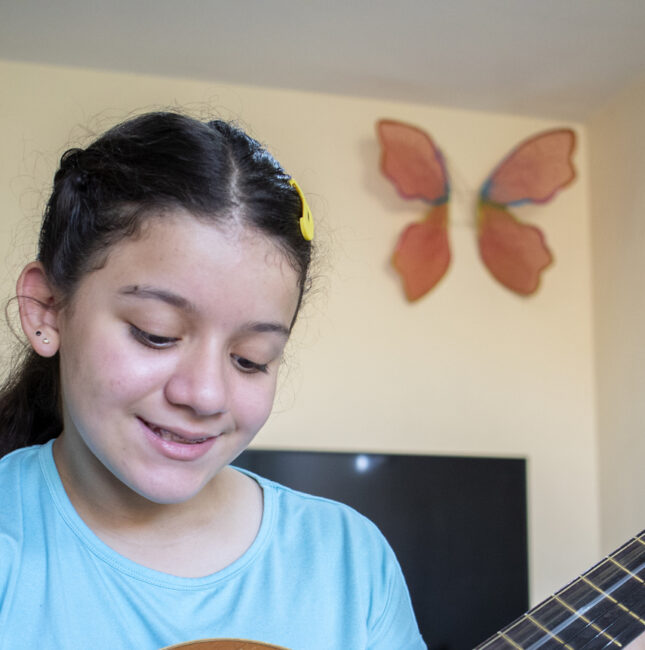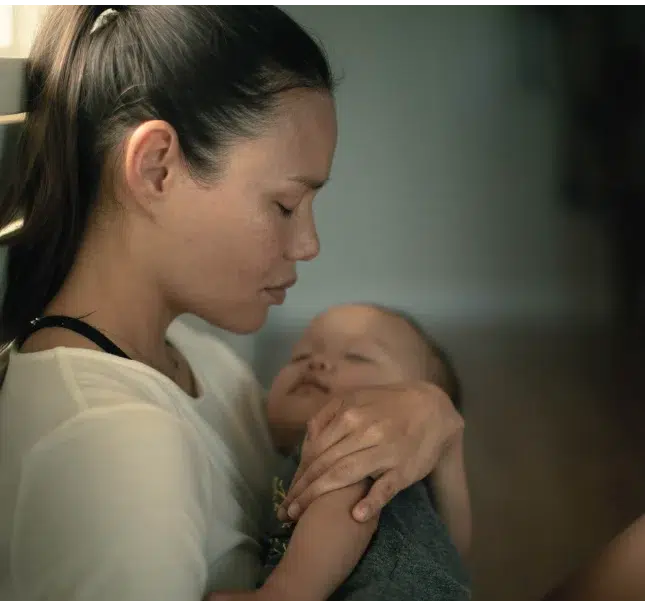Anna finally has a safe place to call home
June 15, 2022
For 29 year old Anna and her daughter, the Lindara Family Program is the reason they aren’t homeless today. Issues around housing affordability and ongoing experiences of family and domestic violence left Anna in a constant state of fear that she and her daughter would have nowhere safe to live. Today, Anna and her daughter are living in a home that meets all their housing needs and they are one of 26 families who have been supported by the Lindara Family Program this year.
Even after Anna’s ex-partner was incarcerated, she knew that she still wasn’t safe. Some of her neighbours had associations with the perpetrator, and they would abuse and threaten Anna regularly. Anna’s limited support network meant that she was isolated and without anyone to turn to for financial assistance.
When Lindara became involved, Anna was connected with a multi-service support team that worked together to maximise the family’s safety and service delivery, and with a service that were assisting temporarily with rental costs. This meant that Anna and her daughter could remain housed without financial distress until they could be supported to move into a CatholicCare transitional housing property. During this time, Lindara caseworker, Radhe advocated strongly for priority housing, and this was approved ten days before moving into transitional accommodation. Through the strong connections CatholicCare has with local housing providers, Anna was offered a social housing property one day after moving into transitional accommodation. Radhe then focused on referring Anna to services providing furniture, utilities, white goods and homewares. After just two weeks in transitional accommodation, Anna and her daughter moved into their new home and Anna’s daughter is now attending the local school.
Anna could not be happier with where she is today. Without the strong advocacy and collaboration from a multi-disciplinary team, this outcome would not have been achieved so quickly and effectively.
At any one time, Lindara’s caseworker Radhe works with 10 or more clients like Anna who are either experiencing or at risk of homelessness. “This may be due to family breakdown, visa issues, legal issues or domestic violence,” Radhe says. “When we work with a client, we prioritise their housing and safety needs. We build rapport with them, and we work with them collaboratively to figure out what their broader holistic goals are, ultimately ensuring that they are safe and secure.”
The COVID pandemic has led to some particular challenges for Radhe in her work with families. “A big one is the mental health of our clients, which has been worse during the pandemic,” Radhe says. “A lot of women have experienced social isolation. Even after leaving abusive relationships, they are not able to build those community networks, or they have been locked out of supports due to the pandemic. That has put increased pressure on women to look after their children, home school their children and cope without much support. We have seen an increase in women presenting with anxiety during this time.”
While finding support for temporary visa holders is often a challenge, this has been even more difficult during the pandemic, “Temporary visa holders often aren’t eligible for some services and benefits and so the financial strain on them is very intense,” Radhe says. “This impacts greatly on them and their children.”
One of Radhe’s current focuses is on networking with housing providers, real estate agents, counsellors and grassroot community organisations, to create more options for clients. “The community relationships that we have are crucial in making sure that our clients have access to as many supports and brokerage as possible … making sure that the relationships I have with them are positive, encouraging and appreciative is something I put effort into,” Radhe says.
In Radhe’s journey with every client, she works with the assumption that they already have the capacity, self-knowledge, and skills to navigate through their challenges, “My role is to build their confidence and hope for the future, and to allow them that space to have self-determination over their lives.”
More news stories like this one
Changing lives through literature
Many of us take it for granted that our kids will grow up learning to read and write, yet for many children throughout Australia, this is not the case. Lack of education and early literacy can affect children throughout their lives and lead to psychological damage, poor health, fewer job opportunities and lower incomes.
Read MoreBuilding a support network makes all the difference for Julia
It was May 2022, and Julia’s whole body went numb as she sat in a hospital room with her 14 year old daughter, Anna. They'd been discharged from the hospital, but they had nowhere to go.
Read MoreThe importance of post natal mental health
Parenthood can be an extremely emotional time for everyone as it brings immense change. It can be both joyous and...
Read More


